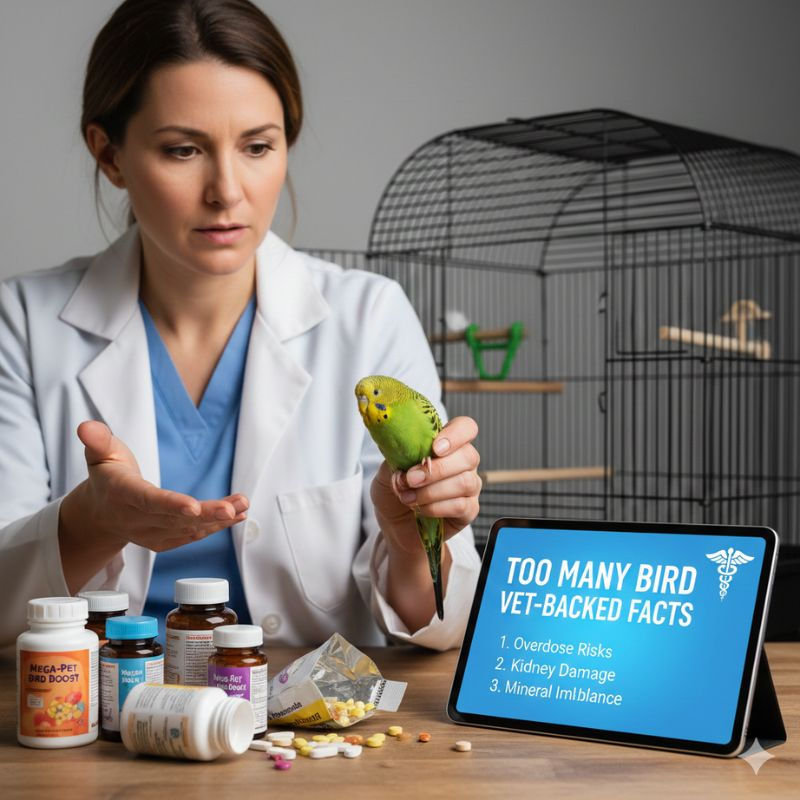What Do Pet Birds Eat in the Wild vs. at Home? Shocking Differences!
- petperchlove
- Jun 10, 2025
- 4 min read

Have you ever wondered what do pet birds eat in their natural habitats compared to what they consume at home? Understanding this difference is crucial not only for their nutritional health but also for their behavioral enrichment and overall well-being.
In this comprehensive guide, we’ll explore how wild birds feed themselves, how domesticated birds' diets differ, and how you can provide balanced and enriching birds food at home with the help of high-quality Pet Bird Food, Bird Supplies, and Bird Treats from trusted brands like Kwik Pets.
🌿 What Do Birds Eat in the Wild?
In the wild, birds have to forage and adapt their diet based on what's available in their environment. Their meals are often dictated by the season, region, and species.
Here’s a general breakdown of what wild birds typically eat:
Seeds & Grains: Finches, sparrows, and doves often feed on wild seeds, grass, and grains.
Fruits & Berries: Parrots and other tropical birds love ripe fruits and berries found in the wild.
Insects & Worms: Protein-rich meals like caterpillars, beetles, and worms are staples for many species, especially during breeding seasons.
Nectar & Pollen: Hummingbirds and lorikeets enjoy nectar and flower pollen as part of their energy-rich diet.
Nuts: Larger birds such as macaws and crows crack open nuts with their powerful beaks.
In essence, wild birds eat a variety of natural foods that promote survival, migration, and reproduction.
What Do Pet Birds Eat at Home?
Now, let’s address the core question: what do pet birds eat when they live under human care?
Unlike their wild counterparts, pet birds rely on us to provide balanced, safe, and enriched diets. A poor diet can lead to behavioral issues, obesity, and even a shortened lifespan. Here's how their diet should be structured:
1. Pellets (Staple Food)
High-quality Pet Bird Food pellets provide a balanced mixture of vitamins, minerals, and nutrients. Unlike seeds alone, pellets are specially formulated to prevent malnutrition.
💡 Brands like ZuPreem, Kaytee, and the collection at Kwik Pets offer excellent pellet-based food options.
2. Bird Seeds
While seeds shouldn't be the only food in your bird’s diet, they are still a vital part of their intake, especially for small birds like canaries and budgies. Make sure they are clean, fresh, and species-appropriate.
3. Fresh Fruits & Vegetables
Pet birds thrive on chopped vegetables like spinach, kale, carrots, and fruits like apples, bananas, and berries. These mimic their wild feeding habits and provide essential vitamins.
4. Bird Treats
Supplementing your bird’s daily meal with healthy Bird Treats can support mental stimulation and act as a training reward. Avoid sugary or processed treats—stick to options that are nutrient-rich and species-safe.
5. Calcium and Mineral Blocks
Essential for bone health, egg-laying females, and beak trimming, these should always be part of your Bird Supplies setup.
Key Differences Between Wild and Pet Bird Diets
Category | Wild Birds | Pet Birds |
Variety | Broad, based on ecosystem and season | Controlled, needs to be intentionally diversified |
Foraging | Daily activity, crucial for survival | Must be mimicked through foraging toys or feeding tools |
Supplements | Sourced naturally (sunlight, soil) | Needs to be provided via diet or direct supplements |
Safety | Subject to parasites, pesticides, and toxins | Must be strictly regulated for hygiene and safety |
Dependence | Independent hunters | Fully dependent on owners for every meal |
Where to Find the Best Pet Bird Food and Supplies?
To ensure your feathered friend thrives, always choose trusted sources for all essentials. At Kwik Pets, you’ll find a curated selection of:
Pellets and Seed Mixes tailored to different bird species
Bird Treats that are both healthy and tasty
Enrichment tools like foraging toys
Mineral and cuttlebone blocks
Cleaning and grooming tools from the all bird products collection
Whether you’re new to bird keeping or a seasoned avian enthusiast, Kwik Pets offers everything you need under one roof.
Tips for Transitioning Bird Diets Safely
Switching from a seed-based diet to a more balanced one? Follow these steps:
Gradual Mix-In: Slowly mix new pellets with current seeds.
Monitor Behavior: Look for signs of stress or refusal to eat.
Daily Fresh Food: Introduce new vegetables/fruits in small amounts.
Stay Consistent: Routine helps birds adapt more easily.
Final Thoughts
Understanding what do pet birds eat in the wild vs. at home helps you provide better care and a healthier lifestyle for your avian companions. While you can’t exactly recreate the wild, you can enrich your pet bird’s life through varied diets, natural birds food, smart Bird Supplies, and reliable sources like Kwik Pets.
Frequently Asked Questions (FAQs)
Q1. What do pet birds eat daily?
Pet birds need a diet consisting of pellets, some seeds, fresh fruits, vegetables, and occasional treats. Clean water should always be available.
Q2. Can I feed my pet bird human food?
Only certain foods like cooked rice, fruits, and unsalted vegetables are safe. Avoid chocolate, avocado, caffeine, and salty or sugary items.
Q3. Why are seeds alone not enough for pet birds?
Seeds are often high in fat and lack essential nutrients. Long-term seed-only diets can lead to malnutrition and obesity.
Q4. How often should I give bird treats?
Bird treats should be given in moderation—no more than 10% of your bird’s total daily food intake.
Q5. Where can I buy high-quality Pet Bird Food and Bird Supplies?
You can shop reliable and vet-approved items from Kwik Pets, which offers a broad selection of all bird products tailored to different bird species.



Comments